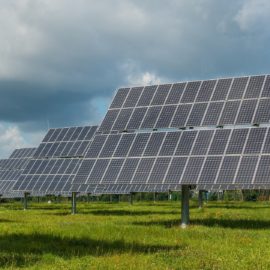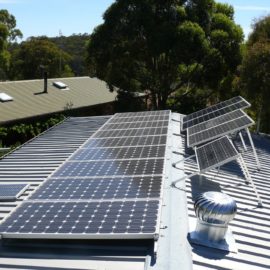The republican debt limit hurts many and the EV and solar industries are in that group.
Solar and EV companies are warning that a Republican plan to slash federal spending in exchange for a hike in the U.S. debt ceiling could hobble the tax incentives that unleashed billions of dollars in green investment and created tens of thousands of jobs in Republican districts over the past year. The Republican-controlled U.S. House of Representatives on Wednesday passed a bill that would revoke tax breaks and other clean-energy and manufacturing incentives included in Democratic President Joe Biden’s Inflation Reduction Act of 2022, which has spurred investment in battery plants, electric vehicles, solar-panel factories and other businesses. The measure has little to no chance of making it through the Democratic-controlled Senate and Biden has vowed to veto it if it made it to his desk, but still sparked concern among executives in the sector. “What I am concerned about is why this type of thinking is coming from the party that is supposed to be for American working people and small businesses and energy security,” said Tony Frisone, a Republican who is chief executive of CZAR-Power, an Ohio-based startup that is developing devices that can fast-charge electric cars.
reuters.com
This push back is part of the new republican party that no longer follows its roots.
The pushback is another sign of widening divisions between U.S. businesses and their traditional allies, as Republicans have come to rely less on corporate donations and grown increasingly willing to criticize businesses they say are advancing liberal social policies. The Inflation Reduction Act, which passed last year without a single Republican vote, is a signature Biden accomplishment and offers $369 billion investment to address climate change. This includes $270 billion in tax incentives. The Chamber of Commerce, which historically has supported Republican policies that were thought to be more pro-business, said it does not want the tax incentives to be repealed – even though it opposed passage of the IRA last year, its top energy lobbyist Marty Durbin told the Senate energy committee on Wednesday. The Republican package would not revoke the IRA’s corporate tax hikes and price controls on pharmaceuticals, which drew the most vocal opposition from business groups. Repealing the law’s tax credits would save the United States $570 billion over the coming 10 years, according to the nonpartisan Congressional Budget Office — roughly 12% of the bill’s $4.8 trillion budget savings. But that could also undercut an industry that has announced 191 new projects since last August, accounting for 142,000 jobs, according to Climate Power, an advocacy group.
Their draconian cuts take us backward which is what they want.
Insulation maker CleanFiber said its expansion plans, involving hundreds of new jobs and hundreds of millions of dollars in investment, would be threatened if the tax credits were revoked. “Now is not the time to go backwards,” CEO Jonathan Strimling said in a statement. Republicans have portrayed the tax credits as a distortion of the free market that gives unfair advantage to clean-energy producers over fossil fuels. Their package also includes incentives for increased oil and gas production. More than half of the green energy projects announced since the bill’s passage are located in areas represented by House Republicans, according to Climate Power, and are projected to create 77,261 jobs. Biden has made those new jobs central to his 2024 re-election effort. Vice President Kamala Harris earlier this month visited one of those projects, a Hanwha Solutions Corp (009830.KS) Hanwha Q Cells solar panel factory in Dalton, Georgia, in a district represented by hardline Republican Representative Marjorie Taylor Greene. Greene did not participate in the event, though she has praised QCell’s investment in her district. Representative Nancy Mace, whose coastal South Carolina district has seen $3.5 billion in new clean-energy investment since last August, said she was mindful of the risk. “Solar is really big across the state of South Carolina, so looking at the way small businesses are treated in that proposal gives me concern,” Mace told Reuters. She ultimately voted for the bill on Wednesday.
The message sent is not a good one!
Industry officials said the House bill sends a chilling message, by signaling that the incentives are not widely supported. “It’s completely destabilizing. We are not just talking about cynical American investors that are used to this kind of politics, but you are influencing capital decisions made in Korea and Europe” said Peter Davidson, CEO of investment firm Aligned Climate Capital. Frisone, of CZAR-Power, said he plans to call Republican officeholders to make his case, adding, “This is a political stunt — why are we doing it?”
Dana Millbank did a good piece yesterday on the effects of this debt limit bill. It is bad.


![Together New Orleans wins unanimous vote for Community Solar overhaul Together New Orleans [logo]](https://gnoicc.org/wp-content/uploads/2023/11/tno.jpg)
